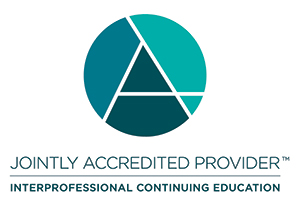Please note: AABB reserves the right to make updates to this program.
Live Program Date: Wednesday, August 10, 2022 - On-Demand Available
Program Number: 22EL-764
Director: Elizabeth St. Lezin, MD, Professor of Laboratory Medicine, University of California San Francisco Laboratory Medicine; San Francisco, CA
Moderator: Morvarid Moayeri, MD, PhD, Associate Clinical Professor of Laboratory Medicine, Associate Medical Director of Transfusion Service, University of California San Francisco, Department of Laboratory Medicine, San Francisco, CA
Speakers:
Patients may refuse blood transfusion for religious or other reasons. Bloodless medicine has been described as extreme patient blood management (PBM) and uses many of the same approaches as PBM. This program will review key elements of bloodless care programs and focus on advances in bloodless medicine and surgery. Bloodless care outcomes in specific patient populations will be considered. The program will include case studies highlighting the use and availability of blood alternatives including hemoglobin-based oxygen carriers (HBOCs) for patients who refuse transfusion. The faculty will also identify lessons learned from managing patients without blood transfusion that can be applied to providing safe and effective support for all patients with anemia.
After participating in this educational activity, participants should be able to:
Please note: If you registered for the live eCast you do not need to register for the on-demand eCast (access to the on-demand eCast was included with the live eCast registration).
| Single Viewer | Register |
| Group Viewing | Register |
This activity is eligible for one (1) continuing education credit/contact hour for Physicians, Nurses (including California-based nursing professionals through CBRN), California Lab Personnel, Florida Lab Personnel and General Participation credit. AABB reserves the right to reduce or increase the number of credits granted based on the final activity duration. For more information on each credit type please visit our Continuing Education Credits webpage.
There is no financial support for this activity.

In support of improving patient care, this activity has been planned and implemented by the Association for the Advancement of Blood & Biotherapies (AABB) and CME Outfitters, LLC. CME Outfitters LLC. is jointly accredited by the Accreditation Council for Continuing Medical Education (ACCME), the Accreditation Council for Pharmacy Education (ACPE), and the American Nurses Credentialing Center (ANCC), to provide continuing education for the healthcare team.
Physicians (ACCME): CME Outfitters, LLC, designates this live activity for a maximum of one (1) AMA PRA Category 1 CreditTM. CME Outfitters, LLC, designates this enduring activity for a maximum of one (1) AMA PRA Category 1 CreditTM. Physicians should claim only the credit commensurate with the extent of their participation in the activity.
Claiming Credit
Live Activity - Upon completion of the live activity, you will receive instructions to complete your evaluation, which is necessary to claim credit and receive your certificate of attendance/completion (credit must be claimed by the date provided in the instructions). The evaluation can be found by logging into the AABB Education Platform.
Enduring Activity - Once the enduring (on-demand) program is available, you will receive instructions to access the AABB Education Platform. Upon completion of viewing the enduring activity, you will need to complete the evaluation, which is necessary to claim credit and receive your certificate of completion (credit must be claimed by the date provided in the AABB Education Platform).
Program & Credit Expiration Dates:
Disclosure Declaration
It is the policy of CME Outfitters, LLC, and the Association for the Advancement of Blood & Biotherapies to ensure independence, balance, objectivity, and scientific rigor and integrity in all of their CE activities. Faculty must disclose to the participants any relationships with commercial companies whose primary business is producing, marketing, selling, re-selling, or distributing healthcare products used by or on patients. CME Outfitters, LLC, has evaluated, identified, and mitigated any potential conflicts of interest through a rigorous content validation procedure, use of evidence-based data/research, and a multidisciplinary peer review process. The following information is for participant information only. It is not assumed that the presence of such relationships will have a negative impact on the presentations.
Disclosures for the planners of this event can be found here. Disclosures for the program faculty, peer reviewers, and CME Outfitters, LLC. personnel are provided at the beginning of the program.
 Dr. Steven M. Frank is an associate professor of anesthesiology and critical care medicine at the Johns Hopkins University School of Medicine. His area of clinical expertise is anesthesia for vascular, thoracic and transplant surgery, and he is an expert in blood conservation methods. Dr. Frank serves as medical director for the Bloodless Medicine and Surgery Program. He is also director of the Interdisciplinary Blood Management Program and of Perioperative Blood Management Services at Johns Hopkins. Dr. Frank’s research is focused on methods to improve blood utilization and methods to avoid blood transfusion for those patients who wish not to receive blood or blood products. His recent research and publications focus on blood conservation and bloodless medicine and surgery. Among his many professional activities, Dr. Frank serves on the board of directors for the Society for Advancement of Blood Management and is an editorial board member for the International Journal of Clinical Transfusion. He was named Teacher of the Year in the Department of Anesthesiology and Critical Care Medicine in 2012 and is a member of a number of professional organizations including the American Society of Anesthesiologists, the American Association of Blood Banks, and the Society for Advancement of Blood Management.
Dr. Steven M. Frank is an associate professor of anesthesiology and critical care medicine at the Johns Hopkins University School of Medicine. His area of clinical expertise is anesthesia for vascular, thoracic and transplant surgery, and he is an expert in blood conservation methods. Dr. Frank serves as medical director for the Bloodless Medicine and Surgery Program. He is also director of the Interdisciplinary Blood Management Program and of Perioperative Blood Management Services at Johns Hopkins. Dr. Frank’s research is focused on methods to improve blood utilization and methods to avoid blood transfusion for those patients who wish not to receive blood or blood products. His recent research and publications focus on blood conservation and bloodless medicine and surgery. Among his many professional activities, Dr. Frank serves on the board of directors for the Society for Advancement of Blood Management and is an editorial board member for the International Journal of Clinical Transfusion. He was named Teacher of the Year in the Department of Anesthesiology and Critical Care Medicine in 2012 and is a member of a number of professional organizations including the American Society of Anesthesiologists, the American Association of Blood Banks, and the Society for Advancement of Blood Management.
 Dr. Kevin H. Waters' areas of expertise primarily focus on transfusion management, blood salvage, and obstetrics. He has been federally funded to support investigations in these areas, with multiple peer-reviewed publications resulting, as well as five books on the topic of blood management and one book on neurologic disease in pregnancy. In addition to conducting research, he has served on the editorial board of the journal Transfusion and is the Associate Editor for the Blood Management section of the journal. He is a member of the Clinical Transfusion Medicine committee for the AABB and currently serves on the Committee on Blood Management for the American Society of Anesthesiologists. He is a Past President of the Society for the Advancement of Blood Management. Dr. Waters' research focus has been blood management and optimizing services that minimize transfusion. One of these areas is using intraoperative blood salvage. With this technique, shed surgical blood is captured, filtered, washed, and retransfused. In general, use of this technology in obstetrical hemorrhage has been contraindicated due to a fear of entraining amniotic fluid and causing an iatrogenic amniotic fluid embolism. With this work, he demonstrated that blood that is washed and filtered achieves a purity like that of the blood that is circulating in the mother. This was followed by a database analysis demonstrating safety. Currently, Dr. Waters’ research group is working on the safety of this technology in vaginal hemorrhage. Other research has focused on maximizing the use of computerized physician order entry systems to reduce overuse of allogeneic transfusion and to benchmark the use of allogeneic resources.
Dr. Kevin H. Waters' areas of expertise primarily focus on transfusion management, blood salvage, and obstetrics. He has been federally funded to support investigations in these areas, with multiple peer-reviewed publications resulting, as well as five books on the topic of blood management and one book on neurologic disease in pregnancy. In addition to conducting research, he has served on the editorial board of the journal Transfusion and is the Associate Editor for the Blood Management section of the journal. He is a member of the Clinical Transfusion Medicine committee for the AABB and currently serves on the Committee on Blood Management for the American Society of Anesthesiologists. He is a Past President of the Society for the Advancement of Blood Management. Dr. Waters' research focus has been blood management and optimizing services that minimize transfusion. One of these areas is using intraoperative blood salvage. With this technique, shed surgical blood is captured, filtered, washed, and retransfused. In general, use of this technology in obstetrical hemorrhage has been contraindicated due to a fear of entraining amniotic fluid and causing an iatrogenic amniotic fluid embolism. With this work, he demonstrated that blood that is washed and filtered achieves a purity like that of the blood that is circulating in the mother. This was followed by a database analysis demonstrating safety. Currently, Dr. Waters’ research group is working on the safety of this technology in vaginal hemorrhage. Other research has focused on maximizing the use of computerized physician order entry systems to reduce overuse of allogeneic transfusion and to benchmark the use of allogeneic resources.